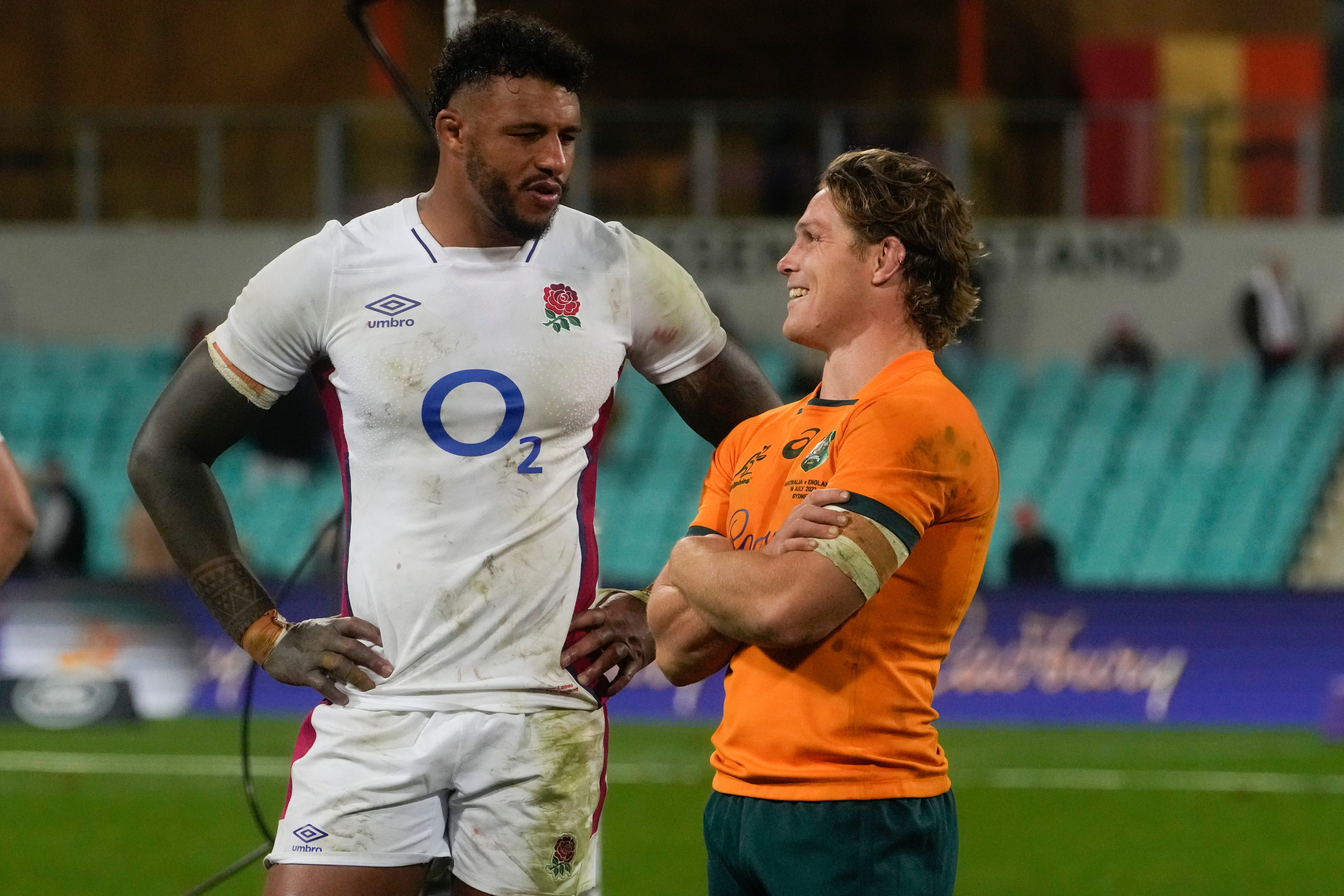Five things we learned from England’s series victory in Australia
The visitors showed resolve to keep the Wallabies out in their final match despite sustained late pressure.

England showed resolve to dispatch Australia 21-17 in their decisive final Test at the Sydney Cricket Ground, emulating Eddie Jones’ class of 2016 in inflicting a series defeat on the Wallabies.
Here, the PA news agency examines five things we learned from the three Tests.
Dig in for your mates
Clinching a series victory in Australia is a significant achievement, especially in the wake of another dismal Six Nations which placed Eddie Jones’ future in renewed doubt. The storm clouds have been dispersed through wins in the second and third Tests and England showed determination to dig out both victories. “You dig in for your mates,” captain Courtney Lawes said when discussing the late defensive stand that swept them over the finishing line, and it is clear resilience is stitched into the DNA of the team.
Work in progress
But there is still much to be done if England are to mount a meaningful challenge for next year’s World Cup. They remain wildly inconsistent within games, never mind from match to match, and it is hard to know which side will turn up – the one who evoked memories of Japan 2019 with a devastating 35 minutes in the second Test or the XV that crumbled in the series opener after establishing a strong position. Thirteen games remain until their opener against Argentina in France next year and Jones must not waste a moment if Ireland, France and South Africa are to be caught in time.
Mismatch or the solution?
England’s attack functioned sporadically during the series and remains the single biggest area of concern. At heart of the issue is the playmaking axis of Marcus Smith and Owen Farrell, which after three Tests has yet to provide any evidence that it is the way forward. For now Jones and attack coach Martin Gleeson are wedded to picking twin fly-halves in the belief that it offers the best solution to the power and pace deficit in the backline, but their styles and personalties are not gelling. The conundrum facing Jones is choosing when to abandon the experiment if it is failing to ignite the attack.
Youngs guns shine
Even if England rarely dazzled, it has been a valuable tour for sifting through emerging talent. Scrum-half Jack van Poortvliet has been the find of the series, displaying remarkable maturity for a 21-year-old and even proving the safer option when veteran Danny Care had to be withdrawn in the third Test because of an error-ridden 37 minutes. Van Poortvliet enters the autumn as the man in possession and Tommy Freeman – another 21-year-old – will take some shifting from the number 11 jersey too after he caused the Wallabies repeated problems with his pace, power and running lines. Most exciting of all is Henry Arundell, the sensational 19-year-old wing who announced his arrival on to the world stage with a stunning solo try in the first Test.
Wounded Wallabies
As the likes of Ireland and France power onwards, Australia find themselves in a similar position to England – a middling heavyweight who fire only in spurts and are seeking an identity as well as consistency. The Wallabies’ attack is further ahead than that of Jones’ tourists and they display similar determination when their backs are against the wall, but the rate at which they wasted chances and made errors was debilitating. The world game needs a strong Australia and it is to be hoped that their name can be added to the list of genuine challengers for next year’s World Cup.
Subscribe to Independent Premium to bookmark this article
Want to bookmark your favourite articles and stories to read or reference later? Start your Independent Premium subscription today.

Join our commenting forum
Join thought-provoking conversations, follow other Independent readers and see their replies